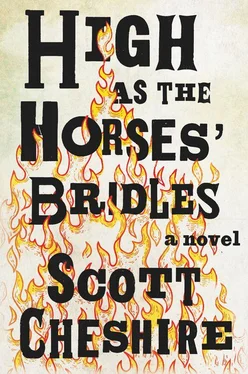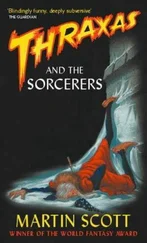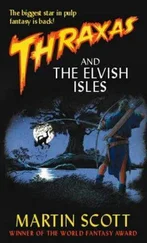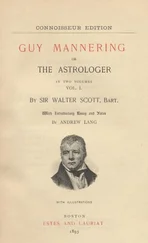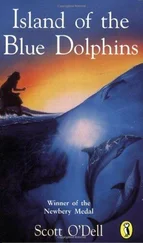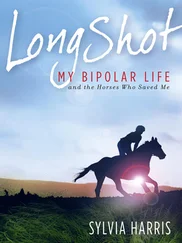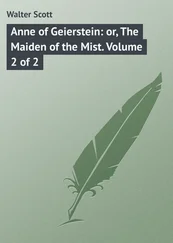“I like it.”
“A good plan?”
“Good plan,” I said. “And what’s the mission today?”
“I will take care of the front, if you do the inventory.”
“No problem.”
“This is not a small job. The storeroom is like a jungle. You’ll be in there all day long.”
Again with the buzzing at my waist, I hoped it was Sarah.
Dad 10:20.
I showed Amad the phone, and said, “Nothing excites me more right now than the idea of taking our inventory.”
“Then we are halfway there.” He put up his hands and went inside.
“Dad,” I said.
“You called me before,” he said.
“Yeah. And then you called me back.”
“What?”
“You called me back.”
He said, “Don’t treat me like I’m crazy. You called me.”
“Okay,” I said. “Are you all right?”
“What?”
“I said are you all right?”
He coughed. “Your mother,” he said. “She’s here.”
And then he hung up the phone.
Not long after Mom first got sick, I was maybe thirteen, Dad pulled me aside in the backyard. It was late morning. He asked me if we could talk, seriously, man to man. I nodded my head. The maples were in my peripheral vision, and some sort of family get-together was going on in the yard behind ours. I didn’t recognize anyone there as a neighbor.
He said, “I’ve been praying for your mother. Have you been praying for your mother?”
We sat outside on the back porch steps. I was catching lightning bugs and letting them free. The day before I’d caught one and crushed it with my foot on the concrete and watched it glow briefly like the electric smear of a highlighter. And then I watched that yellow light dim and die out. I felt terrible, and guilty, and I asked for God’s forgiveness.
I said, “Yeah, I pray for Mom.”
“Good,” he said. “It’s working. And I’m going to tell you something that you can’t tell anyone. Okay?”
I nodded my head: Yeah, okay.
He said, “I think our Heavenly Father is testing us. I think somewhere inside this horrible woe is a test, a reward. It’s our job to find it. And I believe my good son has the gift of communion with our Heavenly Father.”
I said nothing.
He said, “Don’t you?”
I probably nodded.
He said, “I want you to commune with our Heavenly Father. Ask for his blessing on your mother, on this family, and I think even as much as we do this we still aren’t doing enough. I want to reach him. I want to reach out to him. Will you make a sacrifice with me?”
This made me uncomfortable.
“Nothing would make me prouder,” he said, “than to have my son beside me while I make a sacrifice. A burnt offering of thanks, a visible sign. Will you help me?”
I nodded.
I admit I was interested. What kid wouldn’t be? I had visions of him buying a live chicken or a goat. From where? Maybe a large, live fish from the market. We went to the store to get groceries for dinner, and get charcoal, and Dad filled up a bag with fruits and vegetables. I saw the fish tanks all along the wall. I walked over to them, and heard Dad, behind me, raising his voice. I turned around. He was making a small scene with the produce woman.
“What kind of a produce section doesn’t have pumpkins?” He must’ve wanted them for their dramatic size.
“But they’re not in season,” she said.
He asked her what the most expensive kind of produce was. The most precious. And she shrugged, pointing to a box of dried cherries, and Dad said, “Are those really considered produce?”
“They’re in the aisle,” she said, “so yeah. Ten dollars a box, which is a whole lot more per pound.”
That first cancer was in Mom’s left breast and I remembered how they cut out as much as they could without removing the breast entirely. Oncology has come a long way. I don’t think Mom or the doctors would think twice about removing it now. She went through radiation therapy, and chemo, and the doctors said fatigue should be expected, but it would go away, eventually. Except she just got more tired. Mom had been working as a secretary for a large toy manufacturer back then (now out of business), and so the insurance was good. So were the people she worked with. They visited her in the hospital, and then they visited her at home, and they called her on weekdays while she lay in bed watching Donahue. Her boss was a friendly lady, I don’t remember her name. I do remember Dad being rude to her, to all of them, and making a comment about the flowers they brought, that flowers always die and who brings flowers to a hospital? Who doesn’t bring flowers to a hospital? Dad always seemed ill equipped for the world, or maybe he just lacked enough experience with it.
When Mom first found out she was shocked, yes, I think, definitely, reluctantly shocked and sort of confused. Dad was certainly confused. Baffled. Cancer was not in the plan. How does a family that gives itself all the way to God fall prey? But Mom turned stoic pretty quickly. She found a neutral and practical state of mind that played a good healthy balance to Dad’s manic spirit and bent for abstraction. She would deal with this, and stare it right down. Therapy sessions were regular, and sometimes I went along. We took the bus when Dad was working. Mom didn’t drive. I heard the doctor talk to Mom about “fractional kills,” about the process of cancer therapy and the attempt to kill off the cancer, cell by cell, but that meant small good parts of her got killed, too. I tried to imagine what good parts of her, exactly, were getting killed, and because I couldn’t quite imagine what a real adult woman’s breast looked like (especially my mother’s), I thought of her breast as maybe like a pear or some other piece of fruit, because that’s what it looked like under a sweater or a dress or a shirt. A thin slice of that fruit got cut off at the hospital, every time.
She got depressed, and she prayed. Members of our congregation often visited the hospital and then the house, after she came home, and we all said prayers there together. Sometimes Dad would lead us in prayer, but then at other times some thoughtful visitor who clearly meant well would say something like “God works in mysterious ways,” and Dad would get angry. Mom’s cancer wasn’t a mystery. It couldn’t be. Impossible. To Dad it was absolutely obvious — she had done nothing wrong, probably never a wrong thing in her life, and so this couldn’t be punishment. The only possibility was reward. Somehow, Mom’s getting sick was a reward, a divinely inspired reward, and one that required a deep and considered interpretation lest we think otherwise, because to think otherwise would suggest a God with no plan at all, or at least one not so committed to protecting his devoted.
I only knew that something invisible was killing my mom, and that when I thought hard enough about it I found myself not wanting to talk about that thing at all. Or about anything. I for sure didn’t want to talk from a pulpit. Yet Mom’s sickness brought the elder brothers even closer.
Also, Mom slept a lot. I knew that, too.
She wanted to sleep, I think, because sleep made the hours pass along unfelt, and she could dream. She said she dreamed of paradise and Heaven. And the rest of 1980 seemed to pass like all of us were sleeping. I was in the throes of such adolescent intensities, some of which I can hardly now recall, and Dad was working nonstop and praying nonstop, blaming the world and life itself for Mom’s misfortune — I guess, in a way, he was right — and Mom, a fast-graying and emaciating mamma bear in long hibernation, was always upstairs, losing more hair by the day. Dad slept mostly on the couch downstairs in the living room. Everything had changed. He was working two jobs, selling ad space in a local paper by day and working nights at a convenience store in Astoria. I was going to school, and coming straight home to sit with Mom, or to help Mom to the doctor, or do anything at all Mom needed. So church and Bible study fell off a bit to the wayside. But only for a little while because, this was about spring of 1981, the doctors said the chemo was finally working. They couldn’t say how much exactly, but it was working.
Читать дальше
